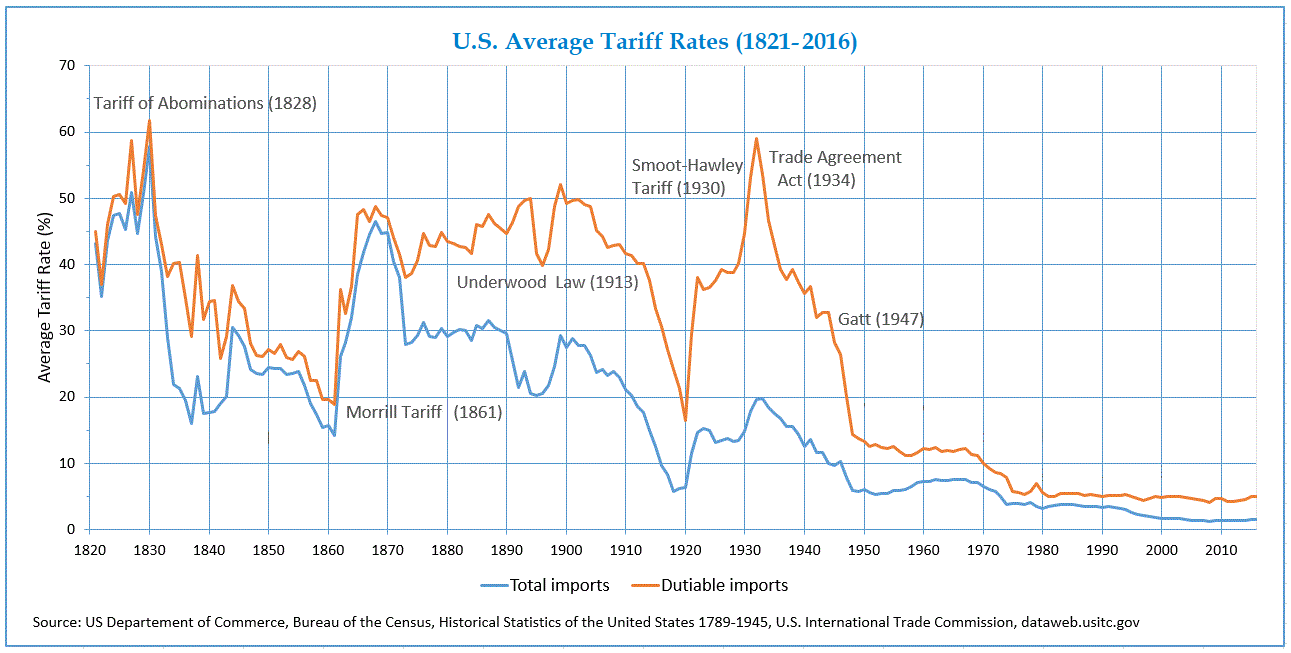12/06/20182 mins
Rhyme and reason… trade tariffs ‘Coming Around Again’
At the risk of sounding like a broken record… for the younger generation of readers, a broken record is a bit like buffering on Spotify… this “history not repeating but often rhyming” thing is becoming quite a theme. This time it’s trade wars.
Rewind to 1930 and the introduction of the innocuous sounding Smoot-Hawley Tariff Act, which raised the average tariff rate in the US on imported goods to nearly 60%. This was a level not seen for more than 100 years, since 1828 to be exact, when the colourfully titled ‘Tariff of Abominations’ was introduced.
Fast forward 88 years and tariffs are back in the news, instigated by President Trump. So far, just 25% on imported steel and 10% on aluminium, but a policy shift that trade partner nations will no doubt respond to.
In the run up to 1930, it was thought that, due to technological advances, the US could produce more than it could consume. The conclusion was that the imposition of tariffs would lead to more local production being utilised.
As it transpired that year coincided with the start of a global economic downturn, heralded by the stockmarket crash of 1929. The slump may have been exacerbated by the imposition of tariffs, but US exports declined by around 50%.
To be fair, economic historians are equivocal on the role that tariffs played in the great depression, but few would see their influence as positive.

It’s interesting to note that there was significant opposition to the Smoot-Hawley Tariff Act in 1930. Over 1,000 economists signed a petition while Henry Ford and the CEO of JP Morgan met with President Hoover to attempt to have the bill vetoed.
Unfortunately, Hoover had been elected on the promise of tariffs on agricultural goods, as an effort to sway the influential farming vote. A protectionist policy that ensured it was hard for him to deny the industrial goods industry further into his administration.
Now, just as then, economists dislike the notion of tariffs, a position echoed by the liberal establishment. But President Trump was elected on the promise of renegotiating trade deals to the benefit of this great nation – to ‘Make America Great Again’. Tariffs appeared as the first salvo in what could be a long trade war.
An interesting footnote is that both Smoot and Hawley lost their positions in the Senate and the House of Representatives after the elections in 1932… the basis for another rhyme?
Please remember that past performance may not be repeated and is not a guide for future performance. The value of shares and the income from them can go down as well as up as a result of market and currency fluctuations. You may not get back the amount you invest.
Please note that SIT Savings Ltd is not authorised to provide advice to individual investors and nothing in this promotion should be considered to be or relied upon as constituting investment advice. If you are unsure about the suitability of an investment, you should contact your financial advisor.



